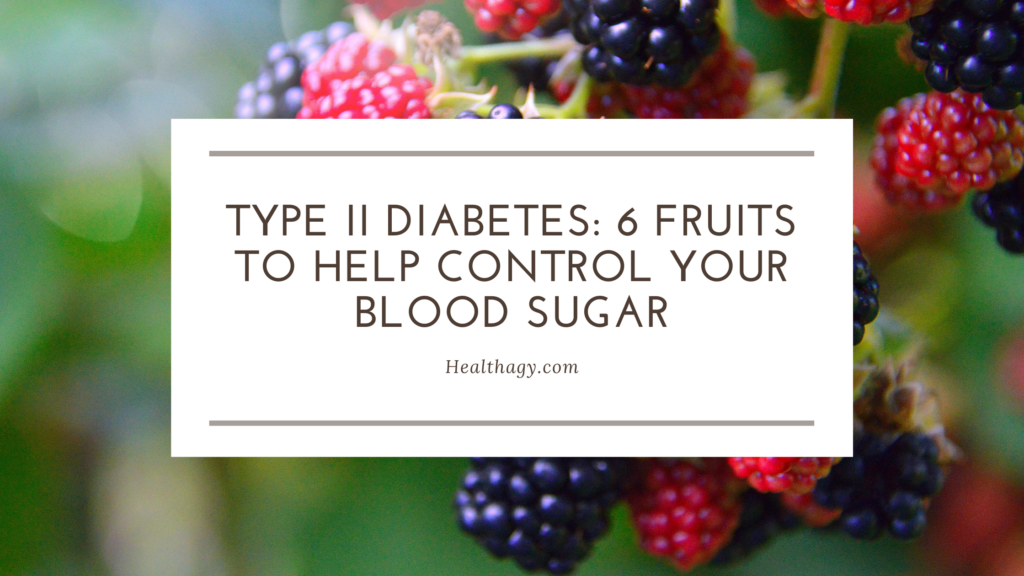
When you’re dealing with a condition like Type 2 diabetes, you may find that making adjustments to your diet can help in controlling your blood sugar levels. If you have diabetes you should be aiming for the same healthy diet that is recommended for everyone desiring optimal health- a diet rich in whole foods; centered on vegetables, fruits, whole grains, legumes, and lean meats. In this post, we’re going to focus in particular on the best fruit for diabetes 2.
Whole fruits are loaded with vitamins, minerals, antioxidants, and fiber which are all essential for fueling your body for greater health. Fruits are also an excellent way to help control sugar cravings while making healthy, nourishing choices for your body. When deciding what the best fruit for diabetes 2 is, you want to look for fruits that have a low glycemic index rating. A glycemic index rating is a value given to an individual food based on how quickly or slowly it impacts blood glucose levels. A food given a low rating will tend to have a slower and steadier release of glucose.
Fruits are packed full of natural sugars because they were created in nature- rather than processed sugars found in foods on store shelves or in the bakery section; which are full of man-made sugars. Your body has a much easier time breaking down natural sugars than it does man-made sugars found in many processed foods, beverages, and sweets. Adding fruit in moderation may even prevent your body from building up insulin intolerance.
Below are a few fruits to consider adding to your diet to naturally control your blood sugar levels. In choosing fruits to satisfy your sweet tooth, you are making a choice for greater health increasing your intake of the vitamins, minerals, and antioxidants that are good for your body.
Avocados
Although sometimes they get thought of as a vegetable, avocados are indeed classified as fruit. Avocados have so many incredible benefits. Most notable they are high in healthy fats; which can help reduce heart disease and reduce inflammation. Avocados are high in antioxidants and full of potassium and other vitamins. They are low in carbs, high in fiber, and have little effect on blood sugar levels. One study found that avocados can help lower bad LDL cholesterol levels while increasing good HDL cholesterol levels. Another study found that avocados may help reduce insulin resistance. They also help you feel fuller longer, which may aid in weight loss.
Kiwi
Kiwi is full of fiber- aiding in digestion and containing sugars that are easy to break down. Research has found that eating kiwi can help lower blood sugar levels. It is is rich in vitamin C, which helps boost your body’s immune system; also containing vitamin K, vitamin E, folate, and potassium as well as many antioxidants. Kiwi has also been shown to help lower triglycerides, promoting a healthy heart.
Cherries
Cherries have a fairly low glycemic index of about 20 depending on their size and shape. Cherries are particularly good at fighting inflammation and packed full of antioxidants that help ward off free radicals and diseases. Since cherries are slightly acidic they are able to break down their own sugars. I find cherries are always a great snack to satisfy my sweet tooth.
Apples
The phrase “an apple a day, keeps the doctor away” came to be for a reason. Apples are great for cleansing the digestive system as well as containing antioxidants that can help boost the immune system. Apples also contain polyphenols that can protect against type 2 diabetes and help the body to use insulin effectively.
Berries
Blueberries, strawberries, raspberries and blackberries all have ratings below 40 on the GI. Berries are rich in a variety of vitamins, minerals, and antioxidants, promoting overall good health. They are packed full of fiber and also known for helping to satisfy sweet tooths.
The recommended serving sizes are strawberries 1¼-cup serving, blueberries 3/4 cup, blackberries 3/4 cup, and raspberries 1 cup.
Grapes
Grapes are packed full of nutrients , particularly vitamins C and K, as with many fruits they are also high in antioxidants. Studies have found the resveratrol found in grapes may help control blood sugar levels.
As always, check with your doctor before making any changes in your diet that could impact your health. You also don’t want to overdue it on fruit, consult with your doctor on the appropriate amount of fruit for you each day.
A few things to consider when purchasing fruit: opt for fresh fruit when you can, bonus if you can buy locally from a farmer. Be cautious with canned or frozen fruits; check the labels and avoid products with any additives, especially added sugars in any form.
Track your blog sugar levels, test before eating fruit and two hours later. Notice how your body responds, may consider keeping a log or food diary.
You may also consider combining fruit with protein or fat such as yogurt or nuts. Berries go great with yogurt- plain unsweetened greek yogurts tend to have no added sugar or the least amount of sugar. Remember to read those labels.
When it comes to the best fruit for diabetes 2, you want to choose fruits that are low in glycemic index and packed full of nutrition. The more you nourish our body as a whole, the more your entire body begins to run more optimally. Keep aiming for greater health with nutrient-rich whole foods.
Karla Kueber is a Certified Evidence Based EFT Practioner and Health Coach, with a double Masters Degree in Education. She works with people to overcome emotional eating, curb cravings, and overcome resistance to eating new healthy foods. You can learn more about coaching with her here.